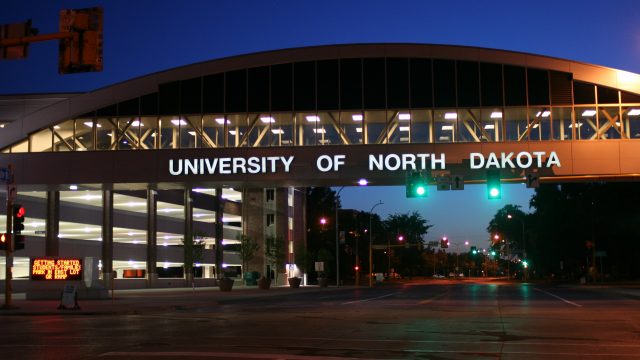Here's An Idea: Maybe We Should Stop Trying Students In Campus Kangaroo Courts

Today the State Board of Higher Education will consider new policy to comply with legislation passed earlier this year requiring that students be afforded the full participation of legal counsel in serious campus proceedings against them.
The move is a grudging one, judging by the tone of this article, and indeed the universities fought long and hard against this legislation earlier this year. One university system attorney – Christopher Wilson, specifically – actually argued that students accused of something as serious as rape would be denied an opportunity to have an “educational” experience if they were given the benefit of having an attorney participate in proceedings against them.
I’m not kidding.
Let’s all hope that if Mr. Wilson or other members of the University System who opposed this legislation ever find themselves accused of a serious crime they are not forced to endure the “educational” situation of representing themselves.
[mks_pullquote align=”right” width=”300″ size=”24″ bg_color=”#000000″ txt_color=”#ffffff”]One university system attorney – Christopher Wilson, specifically – actually argued that students accused of something as serious as rape would be denied an opportunity to have an “educational” experience if they were given the benefit of having an attorney participate in proceedings against them.uyni[/mks_pullquote]
The SBHE will now consider the proposal against them, and eventually they’ll adopt a policy that is in keeping with the Legislature’s new mandate for legal counsel (they have until August), but here’s some advice for the board members. Maybe ask why serious issues like sexual assault are being tried by campus tribunals at all?
It is an important question. While there is no question that the university will need to intervene in some way if a student is accused of a serious of violent crime – you cannot have someone accused of rape or another sort of violence attending crime with his/her alleged victim, for instance – but when it comes to establishing the facts of a case and rendering a judgment on guilt of innocence, why not leave that to the professionals in our court system?
We have cops and prosecutors and judges and centuries worth of jurisprudence all of which exist, at great expense to the taxpayers, specifically to address the issue of crime. And great care has been taken to ensure that the rights of both victims and the accused are protected.
Because very often the rights of the accused are not protected. Take, for instance, a recent case at Amherst College. A male student got drunk and followed a female student back to her dorm room where she performed oral sex on him while he was passed out. Two years later she accused him of sexual assault and he was expelled after his guilt was established by a campus tribunal.
This case is absurd on the face of it. The idea that the male student sexually assaulted the female student by getting oral sex from her while passed out is ridiculous. But even beyond that, text messages from the female student to her friends later came to light which completely exonerated the male student, proving that he in no way sexually assaulted her.
Only Amherst will not consider this new evidence. And if that sounds familiar, consider that a similar thing happened at the University of North Dakota where a student named Caleb Warner was expelled for allegedly assaulting a female student, an expulsion UND refused to rescind even after Warner’s accuser was charged with filing a false police report (they finally relented two years later, and only after getting negative publicity from the national media).
These sort of injustices are far too common on our campuses.
The response from a university to an accusation of rape or other serious crime shouldn’t be to convene a kangaroo court of untrained academics to adjudicate the matter in a process that is very often stacked against the accused. Rather, the matter should be turned over to the courts, with the institution acting only to ensure the safety of students until guilt or innocence is established.
Once that process has played out, the university can make any decisions about expulsions or suspensions.




